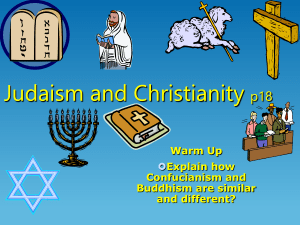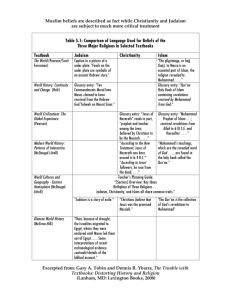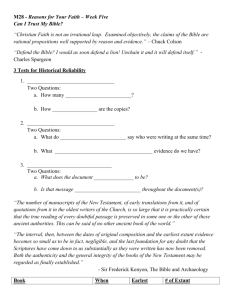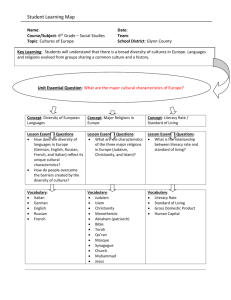ISLAM
advertisement
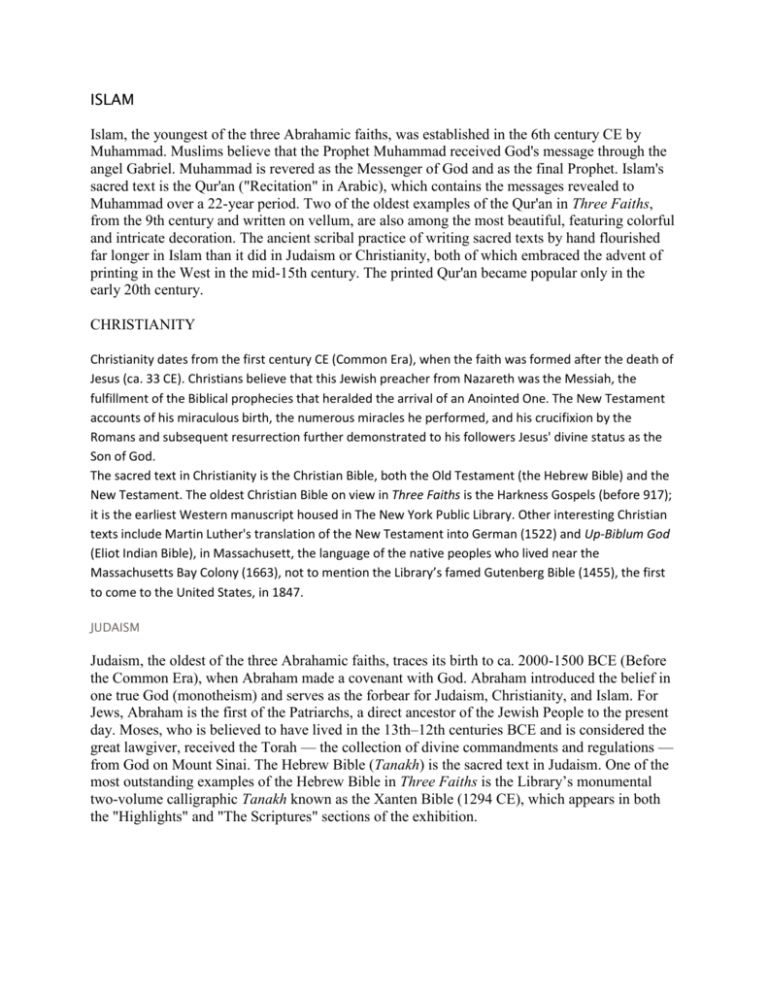
ISLAM Islam, the youngest of the three Abrahamic faiths, was established in the 6th century CE by Muhammad. Muslims believe that the Prophet Muhammad received God's message through the angel Gabriel. Muhammad is revered as the Messenger of God and as the final Prophet. Islam's sacred text is the Qur'an ("Recitation" in Arabic), which contains the messages revealed to Muhammad over a 22-year period. Two of the oldest examples of the Qur'an in Three Faiths, from the 9th century and written on vellum, are also among the most beautiful, featuring colorful and intricate decoration. The ancient scribal practice of writing sacred texts by hand flourished far longer in Islam than it did in Judaism or Christianity, both of which embraced the advent of printing in the West in the mid-15th century. The printed Qur'an became popular only in the early 20th century. CHRISTIANITY Christianity dates from the first century CE (Common Era), when the faith was formed after the death of Jesus (ca. 33 CE). Christians believe that this Jewish preacher from Nazareth was the Messiah, the fulfillment of the Biblical prophecies that heralded the arrival of an Anointed One. The New Testament accounts of his miraculous birth, the numerous miracles he performed, and his crucifixion by the Romans and subsequent resurrection further demonstrated to his followers Jesus' divine status as the Son of God. The sacred text in Christianity is the Christian Bible, both the Old Testament (the Hebrew Bible) and the New Testament. The oldest Christian Bible on view in Three Faiths is the Harkness Gospels (before 917); it is the earliest Western manuscript housed in The New York Public Library. Other interesting Christian texts include Martin Luther's translation of the New Testament into German (1522) and Up-Biblum God (Eliot Indian Bible), in Massachusett, the language of the native peoples who lived near the Massachusetts Bay Colony (1663), not to mention the Library’s famed Gutenberg Bible (1455), the first to come to the United States, in 1847. JUDAISM Judaism, the oldest of the three Abrahamic faiths, traces its birth to ca. 2000-1500 BCE (Before the Common Era), when Abraham made a covenant with God. Abraham introduced the belief in one true God (monotheism) and serves as the forbear for Judaism, Christianity, and Islam. For Jews, Abraham is the first of the Patriarchs, a direct ancestor of the Jewish People to the present day. Moses, who is believed to have lived in the 13th–12th centuries BCE and is considered the great lawgiver, received the Torah — the collection of divine commandments and regulations — from God on Mount Sinai. The Hebrew Bible (Tanakh) is the sacred text in Judaism. One of the most outstanding examples of the Hebrew Bible in Three Faiths is the Library’s monumental two-volume calligraphic Tanakh known as the Xanten Bible (1294 CE), which appears in both the "Highlights" and "The Scriptures" sections of the exhibition.
